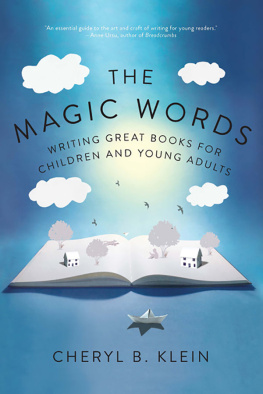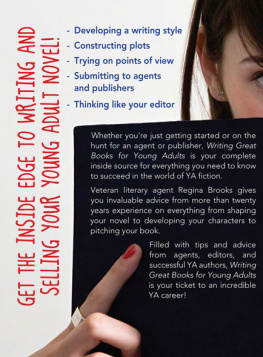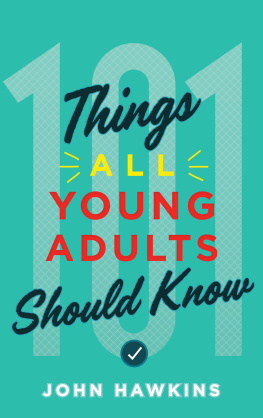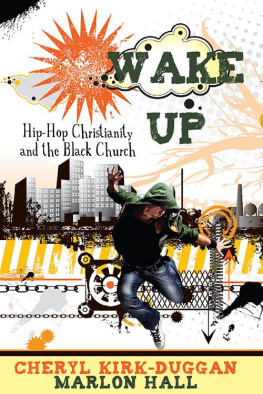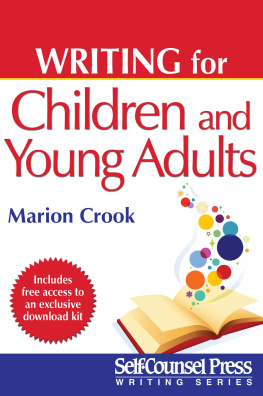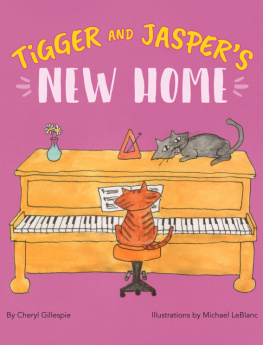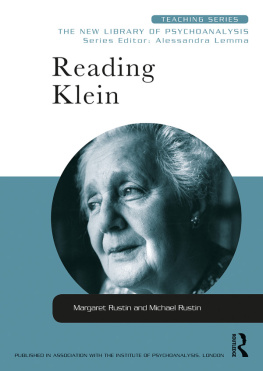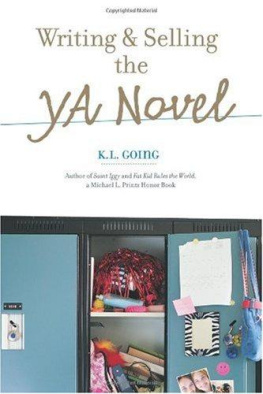Cheryl Klein - The Magic Words: Writing Great Books for Children and Young Adults
Here you can read online Cheryl Klein - The Magic Words: Writing Great Books for Children and Young Adults full text of the book (entire story) in english for free. Download pdf and epub, get meaning, cover and reviews about this ebook. year: 2016, publisher: W. W. Norton & Company, genre: Romance novel. Description of the work, (preface) as well as reviews are available. Best literature library LitArk.com created for fans of good reading and offers a wide selection of genres:
Romance novel
Science fiction
Adventure
Detective
Science
History
Home and family
Prose
Art
Politics
Computer
Non-fiction
Religion
Business
Children
Humor
Choose a favorite category and find really read worthwhile books. Enjoy immersion in the world of imagination, feel the emotions of the characters or learn something new for yourself, make an fascinating discovery.
- Book:The Magic Words: Writing Great Books for Children and Young Adults
- Author:
- Publisher:W. W. Norton & Company
- Genre:
- Year:2016
- Rating:4 / 5
- Favourites:Add to favourites
- Your mark:
- 80
- 1
- 2
- 3
- 4
- 5
The Magic Words: Writing Great Books for Children and Young Adults: summary, description and annotation
We offer to read an annotation, description, summary or preface (depends on what the author of the book "The Magic Words: Writing Great Books for Children and Young Adults" wrote himself). If you haven't found the necessary information about the book — write in the comments, we will try to find it.
Cheryl Klein: author's other books
Who wrote The Magic Words: Writing Great Books for Children and Young Adults? Find out the surname, the name of the author of the book and a list of all author's works by series.
The Magic Words: Writing Great Books for Children and Young Adults — read online for free the complete book (whole text) full work
Below is the text of the book, divided by pages. System saving the place of the last page read, allows you to conveniently read the book "The Magic Words: Writing Great Books for Children and Young Adults" online for free, without having to search again every time where you left off. Put a bookmark, and you can go to the page where you finished reading at any time.
Font size:
Interval:
Bookmark:


For my parents,
Alan and Rebecca Klein,
who let me read and helped me go.

Contents

An Introduction,
and How to Use This Book
W hat was your favorite book when you were a kid?
Among writers, thats the best conversation starter I know. Matilda. The Secret Garden. Bud, Not Buddy. Harry Potter and the Prisoner of Azkaban. People remember how they found the books: this class, that librarian, that former best friend. They remember what the books meant to them: laughter, heartache, recognition. And they remember how the books changed them: how the characters modeled the courage to stand up to oppression; how a novel became a safe space, a home.
Through the invocation of the right words in the right orderthe magic wordsbooks can change lives. And that is never more true than in childhood and young adulthood, when books introduce their readers to worlds both fantastical and right next door, inhabited by characters who share their challenges and joys.
You doubtless have a favorite novel yourselfa story that changed your life, that made you a reader and writer, that perhaps even inspired you on the path youre on today. In this book, well talk about how such wonderful novels work: how novelists create an alternate reality, bring it to life for their readers, and set a story ticking within it. Well discuss structures and techniques for carrying these feats off within your own novel, and well look at some of the particular requirements of writing for a younger audience. Ive worked as an editor in childrens and young adult (YA) publishing for more than fifteen years, and I believe the magic starts with these five essential qualities:
Good prose: This means the strength and integrity of the writing on a sentence-by-sentence level. Sometimes this strength lies in lyricism; sometimes it comes from personality (especially for a first-person voice); sometimes its just plain cleanliness, where the text conveys its information clearly and succinctly. As a reader, I always love discovering a distinctive voice, where the thoughts and the manner of expressing those thoughts could belong to only one writer or character.
Rich characters: Whether human, animal, inanimate, or alien, the characters are figures with multiple dimensions and desires, who are engaged with and take action in their worlds, whom I come to care about, and who show depth and change as the book progresses.
Strong plot construction: The events in the book are compelling enough that I want to read on and see their consequences, which usually happens because I feel invested in the characters and what theyre striving for. These events should make logical and emotional sense given who the characters are and the world they live in, but I also want the plot to surprise me at times, so I cant always see whats coming. The action of the book should conclude in some form of emotional consummation, whether satisfying me with its wholeness, or tantalizing me into the next volume.
Thematic depth: The writer is interested in more than just telling a story; shes trying to make that story mean or say something about being in the world. What she has to say is original, or a familiar thought newly revealed in an original way.
Powerful emotion. The writer catches me (and most readers) up in what the characters are feeling, particularly the viewpoint character. Or, if we have some distance from those characters, the writer can get us to experience the particular emotion he intends at each moment in the narrative, from sadness to terror to hilarity to peaceful quiet. These emotional reactions usually (but somehow not always) grow out of all the preceding elements mentioned here; and as they accrue over the course of reading, their authenticity and integrity become a key measure of the quality of the book.
This last point is worth expanding on, because I believe great fiction (and indeed great art in general) creates a deliberate emotion in the person experiencing itdeliberate meaning its the emotion the author of the book set out to create, so well as that intention can be discerned by the reader. This emotion is achieved authentically through immersing us in the protagonists real experience, not through cheap manipulation. And while every readers interaction with a text will be different, in great books, the emotion the author intends is experienced by a substantial majority of the people who come in meaningful contact with the work. Otherwise, the author isnt achieving what he or she set out to do.
In good childrens and young adult books, the emotional experiences offered by the book will be appropriate to the readers age, and then will speak to or expand the readers own emotional experienceoften at least partly through a connection with the main character. The winners of the Newbery Medal usually excel at creating emotion, especially sad feelings; the grief I felt in reading Bridge to Terabithia and The Crossover transported and elevated me, following the Aristotelian model, where tragedy cleanses the spirit and creates great art. But kids dont want to experience sadness all the time, and who can blame them? So they love Captain Underpants and Divergent and Diary of a Wimpy Kid and the Percy Jackson series, and many other books that make them feel more pleasurable emotions, like humor or warmth or excitement or safe (controllable) fear.
I believe an artistically successful book will demonstrate strength in at least four of the qualities I named above. It doesnt have to have strength in all of them, because that last category, emotion, will determine the depth of the other qualities needed: If you want to write an exciting book, youll need an exciting plot, while you might be able to let thematic depth go by the wayside. Different readers will also value these qualities in varying measures depending on personal taste and mood; sometimes I love a good plotty mystery and sometimes I want a novel with gorgeously lyrical writing. And the presence of all five equals, I would say, masterpieces, like the Harry Potter series and The Westing Game and One Crazy Summer and Clementine. These authors are wizards: They found the magic words.

All writers must discover the stories they want to tell, refine their own unique points of view, and figure out methods of getting their stories and voices down on the page in a manner that communicates their intent. I believe writing guides are most useful to this process when they offer some ground rules or guidelines for writers explorations, and suggest narrative techniques or exercises that can help writers dig deeper and channel their multifarious creativity into focused novels. But in putting forth those ground rules, techniques, and even exercises, a guide is also setting forth its particular values for what makes a good book, so I want to be forthright about mine here.
Most of those values Ive already stated earlier, in describing the kinds of books I love and have had the privilege to edit. Ill add that, besides pleasure, the thing I seek most in fiction is a new reality I can believe in: truth as polished by one particular writers art. I want to be sucked into this imaginary world and believe these characters and their actions are real, and I want the flow of language to be like water to a fishtransparent, so I see right through it to the action, and so immersive that I take it for granted. When I edit a novel, nearly everything I suggest aims for more truth or more transparency. In this book, Ill lay out the principles that guide my editing toward those ends, and show you how to apply those same principles to your work.
Next pageFont size:
Interval:
Bookmark:
Similar books «The Magic Words: Writing Great Books for Children and Young Adults»
Look at similar books to The Magic Words: Writing Great Books for Children and Young Adults. We have selected literature similar in name and meaning in the hope of providing readers with more options to find new, interesting, not yet read works.
Discussion, reviews of the book The Magic Words: Writing Great Books for Children and Young Adults and just readers' own opinions. Leave your comments, write what you think about the work, its meaning or the main characters. Specify what exactly you liked and what you didn't like, and why you think so.

